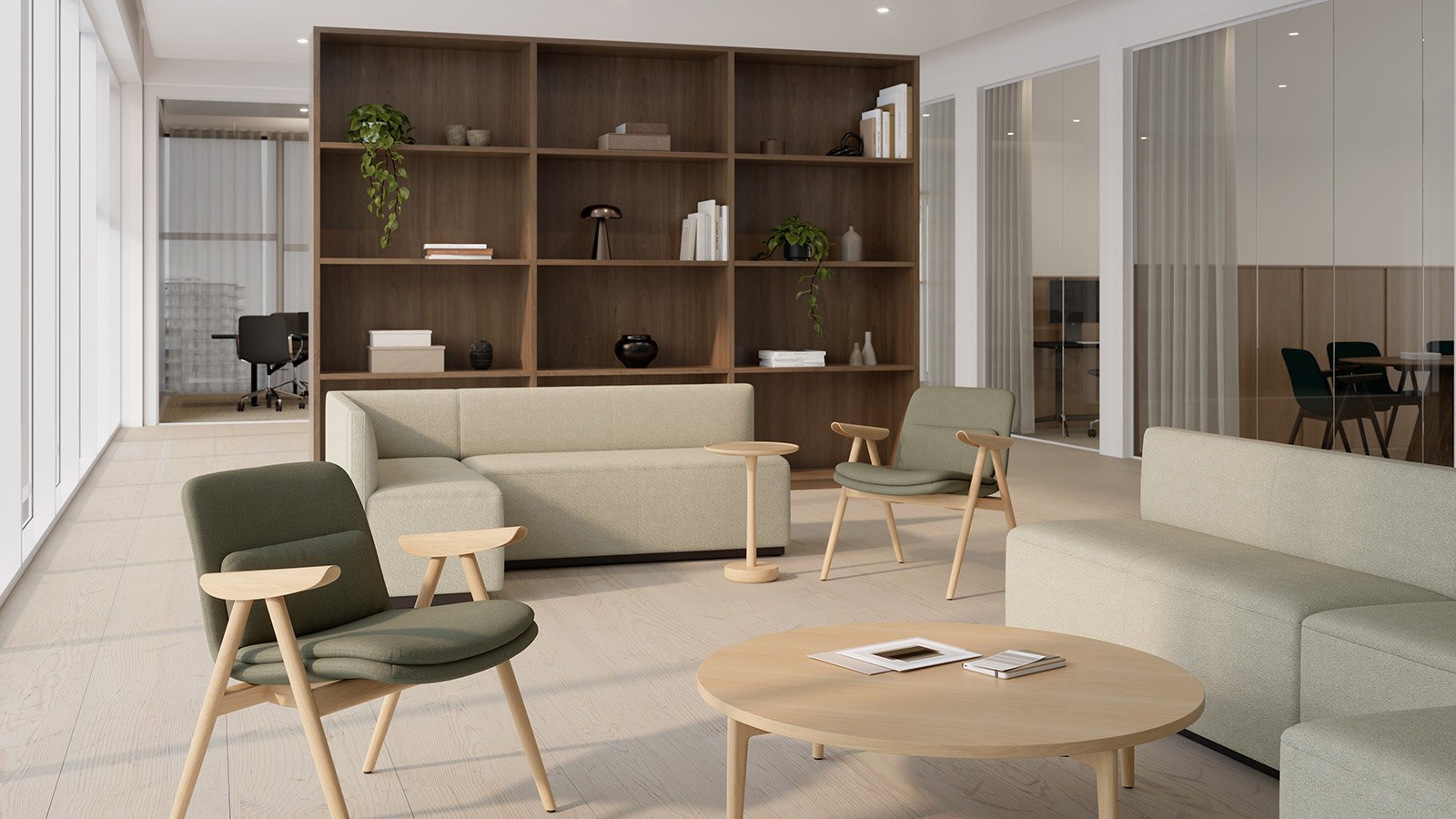
When it comes to sustainability, individuals often feel a sense of personal duty to make eco-conscious choices, whether it be taking transit to work instead of driving or reducing their consumption of single-use plastics. And while every little bit helps, given their sheer scale, corporations must carry a higher burden of responsibility for protecting the environment. The companies featured below are constantly raising the bar — experimenting with new bio-based materials, building circular supply chains, and most importantly, designing products that will stand the test of time. Below, we’ve rounded up recent product launches that exemplify their evolving commitment to sustainable design:
1
Kobold Sofa by Ligne Roset
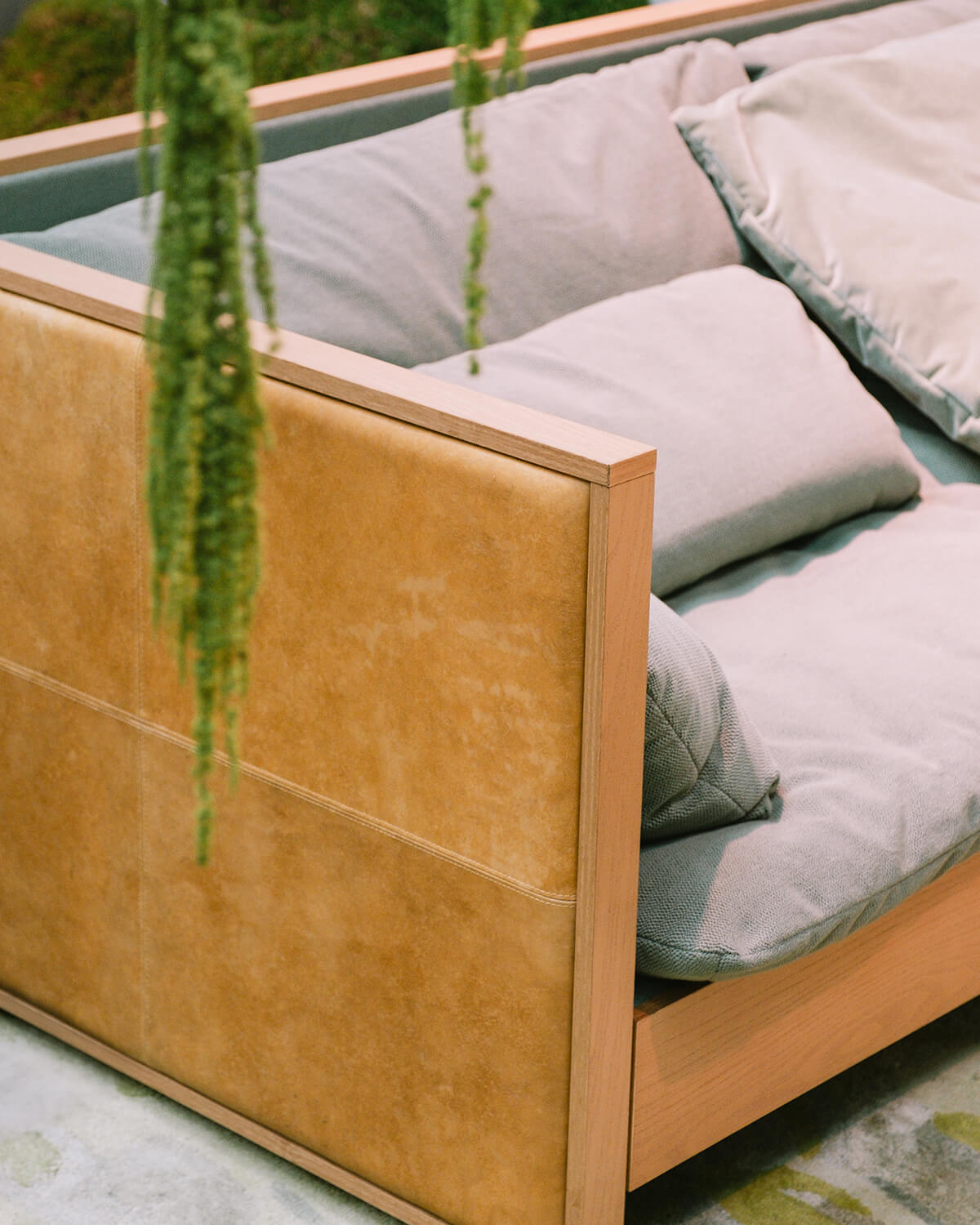
At the 2024 Human/Nature Conference, MycoFutures’ Stephanie Lipp walked us through the process of bringing her mycelium leather alternative to market, in everything from purses to wallets. In the panel discussion that followed, a question emerged: Is such an operation scalable? The answer is a resounding yes. Upholstered in Reishi, a similar mushroom-based biomaterial by MycoWorks, this versatile, modular sofa designed by Erwan Bouroullec for Ligne Roset is a striking proof of concept that experimental materials can indeed be applied at industrial scale without sacrificing technical performance — or aesthetics.
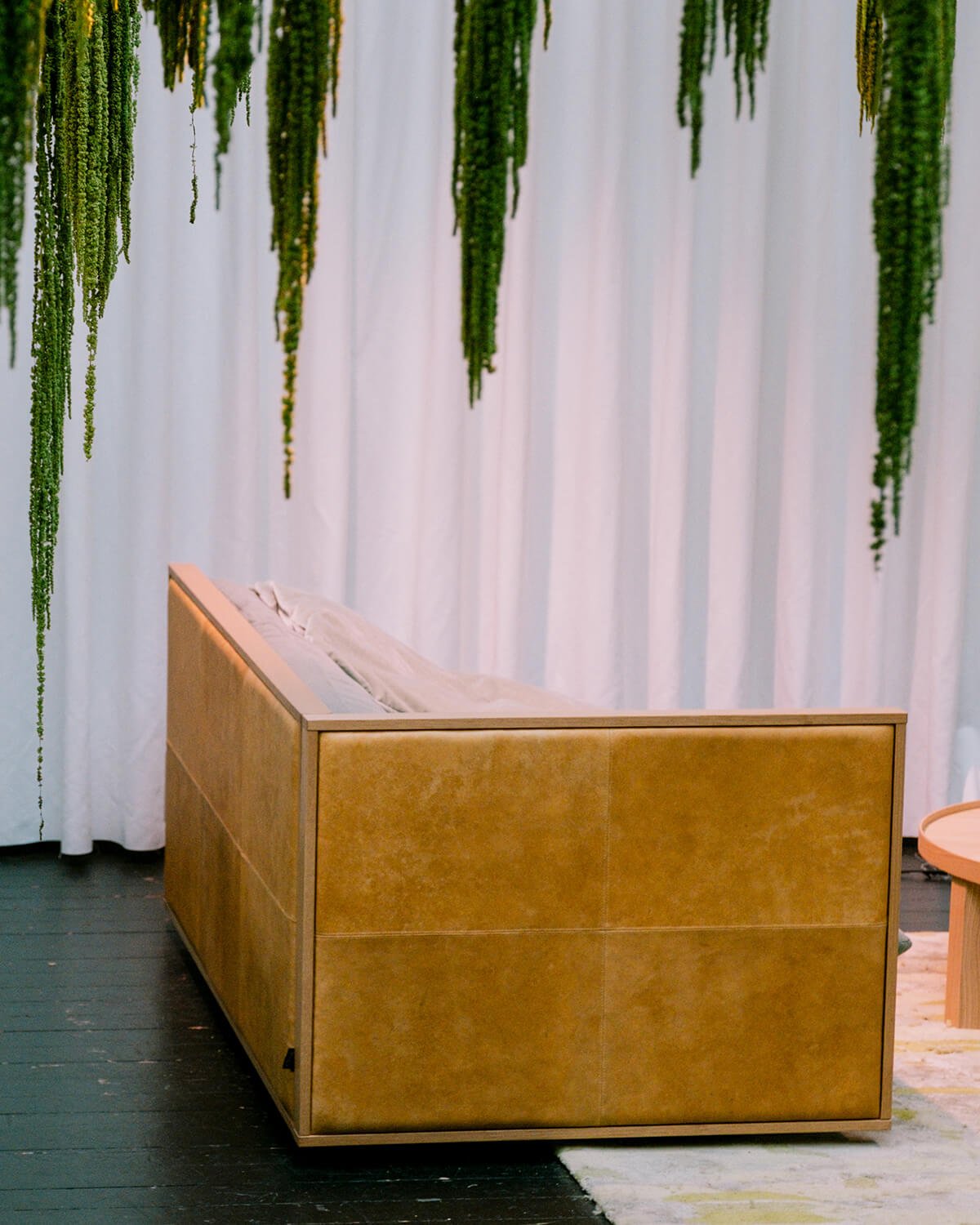
Defined by its clean-lined wooden frame, Kobold offers the perfect contrast of hard and soft with relaxed, loose cushions. The wooden frame can be wrapped in Reishi panels made using MycoWorks’ Fine Mycelium technology, which ensures the durability, elasticity and strength needed to stand up to daily wear. Tanned in Spain, the leather-like vegan textile boasts distinct veining and organic patterns that will patina beautifully over time. True to Ligne Roset’s sustainable ethos, the materials can all be easily separated and recycled at end of life. “We have been waiting for years for a natural and sustainable material that meets our quality standards and our customers’ expectations,” says co-CEO Antoine Roset. “Our partnership with MycoWorks strengthens our commitment to ethical and sustainable development, while upholding the highest level of quality for which the Roset Group is known.”
2
Bio Silica Hybrid Textile by Momentum
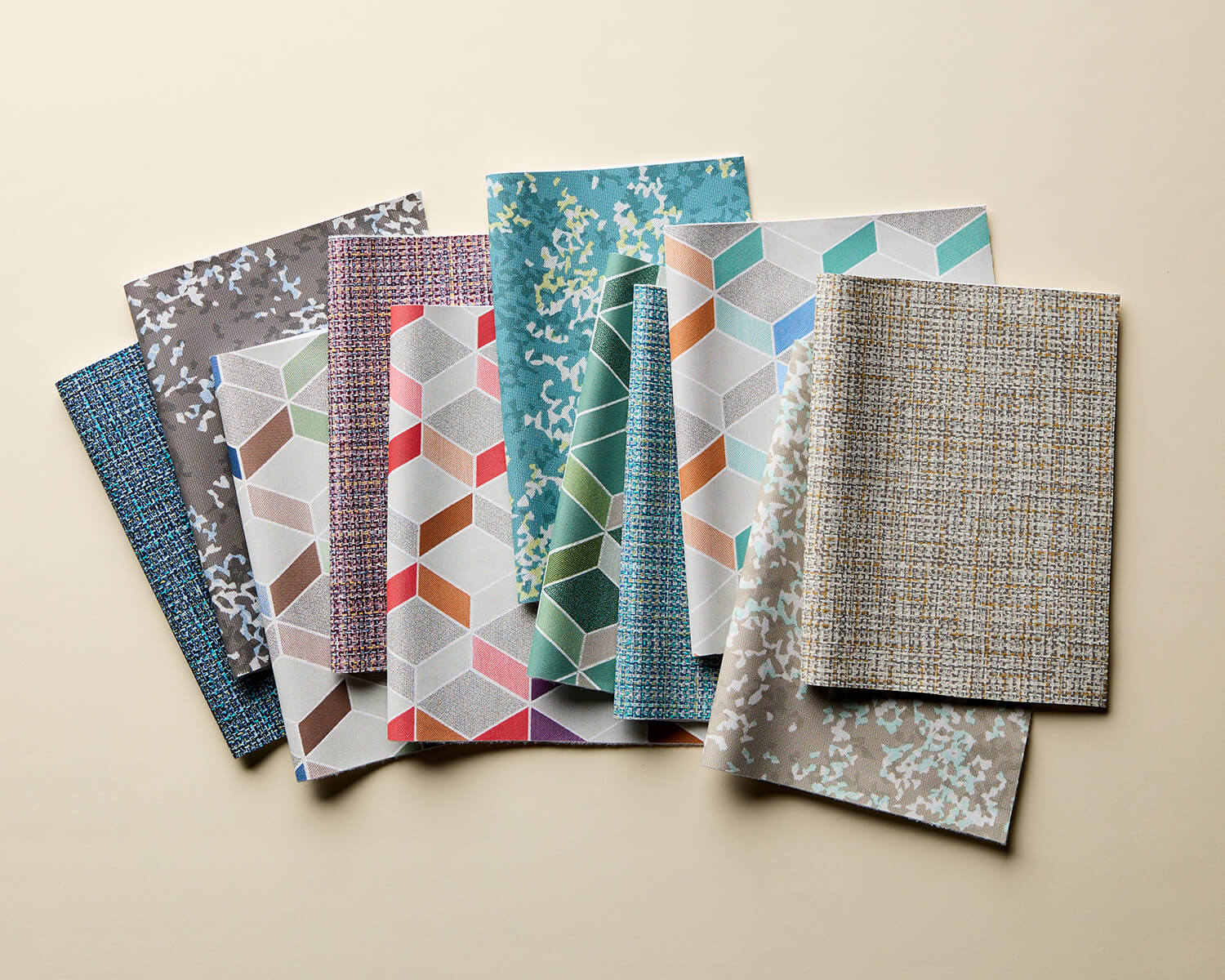
If mushrooms aren’t your thing, perhaps a corn-based textile is more to your taste? This collection from Momentum offers a PVC-free solution made from 76 per cent bio-sourced polyurethane derived from corn-based feedstock. The product’s backing is made from 100 per cent post-consumer recycled polyester, sourced from recycled water bottles, while a silica top layer lends the textile its anti-microbial and stain-resistant properties. Unlike traditional coated textiles, however, Bio Silica Hybrid is made without plasticizers, eliminating concerns about material breakdown and chemical migration. Contributing to healthier indoor environments, the collection is also PFAS- and flame-retardant-free, as well as Greenguard Gold certified.
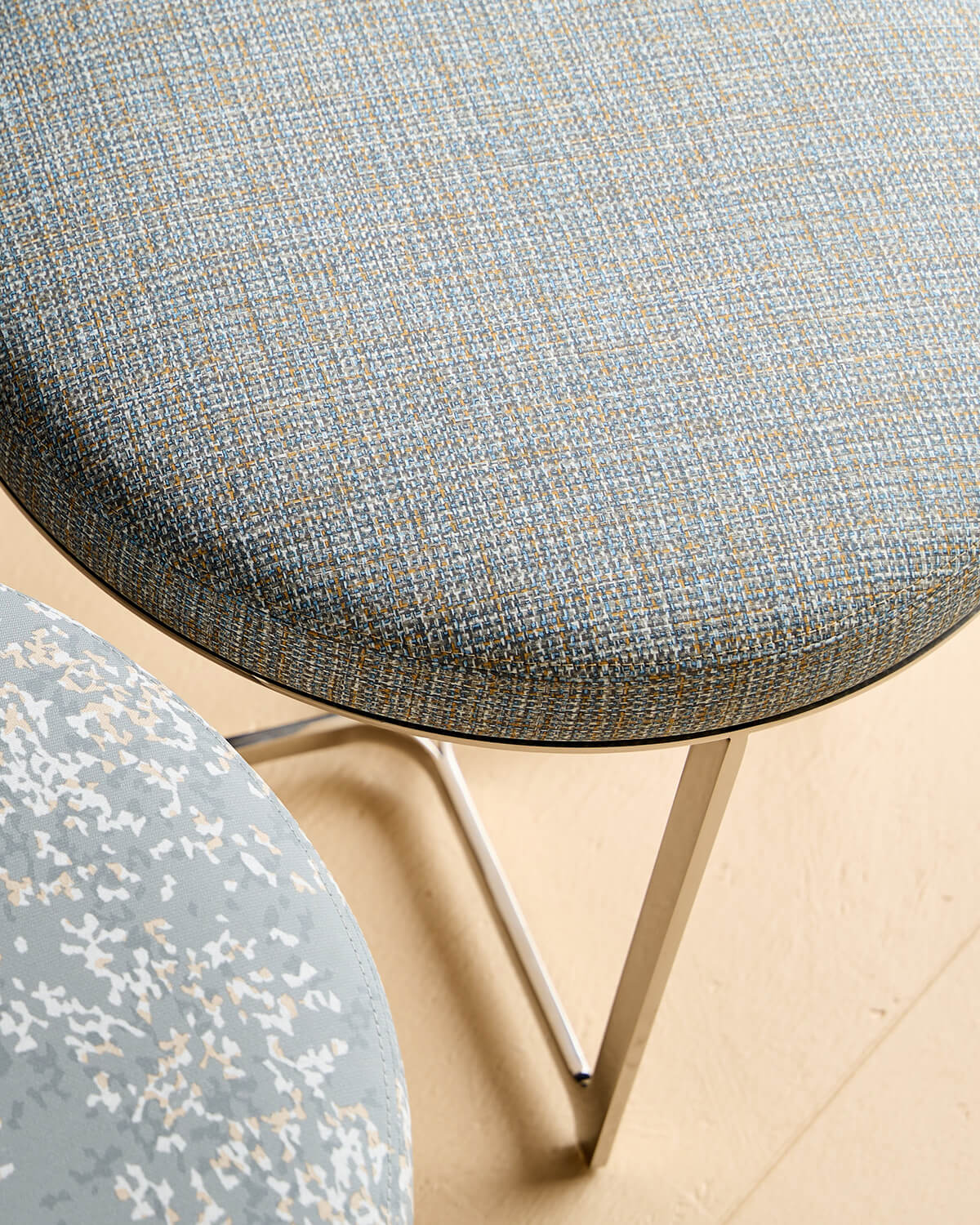
Included in the Bio Silica Hybrid line are three distinct patterns: Kepler Print, a geometric pattern available in nine colourways, Farra, a multi-colour design that mimics woven textiles, and Flitter Print, an organic, nature-inspired pattern that embodies biophilic design. Exceptionally soft, beautiful and durable (withstanding 500,000 double rubs), the collection demonstrates that performance and sustainability can go hand in hand.
3
Valencia Stool by Andreu World
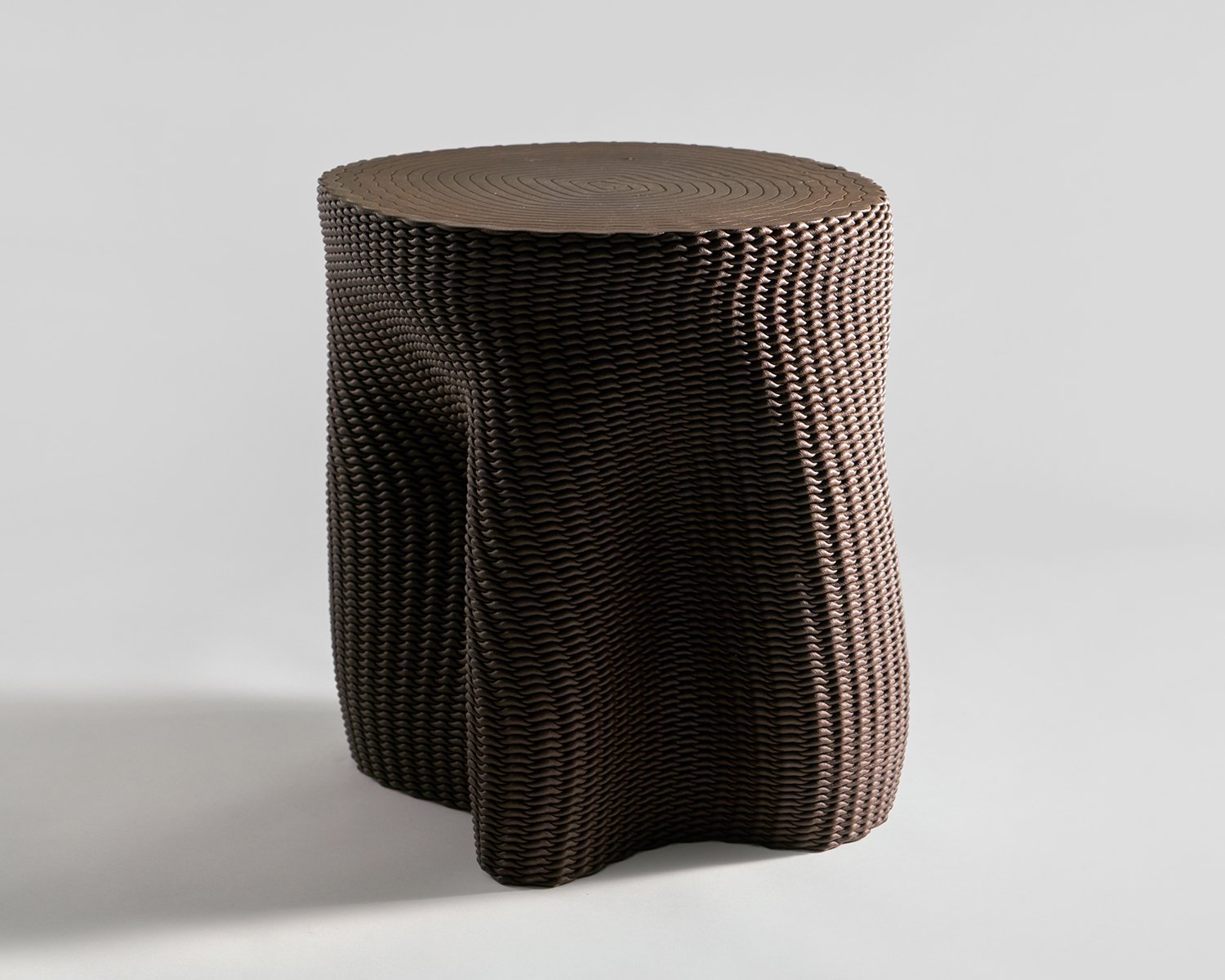
At Andreu World, sustainability is not a buzzword, it is standard practice. The company was the first furniture manufacturer in the world to have its range 100 per cent FSC-certified, and now, its complete collection is also Cradle to Cradle certified. Andreu World’s research and development efforts have included the creation of its own sustainable materials, restoration and reuse of existing designs and advancement towards zero waste. In the aftermath of the floods that rocked its hometown of Valencia last year, the brand partnered with longtime collaborator Patricia Urquiola to design the Valencia Stool, with all proceeds going towards the affected communities.
“Its design is deeply inspired by the emotional and physical impact of this natural disaster, showing a deformed appearance, as if the stool had been hit by the force of the current and challenged by adversity,” explains Urquiola. “The interwoven texture evokes the resilient spirit of a community overcoming hardship.” Manufactured through 3D printing using a biodegradable and compostable material, the Valencia Stool is a testament to Andreu World’s focus on reducing its climate impact. “We must be mindful that everything we do today has consequences tomorrow and be aware that it is necessary to adopt sustainable practices if we want to have a future that is also sustainable,” the company says.
4
Holographic by Ortal
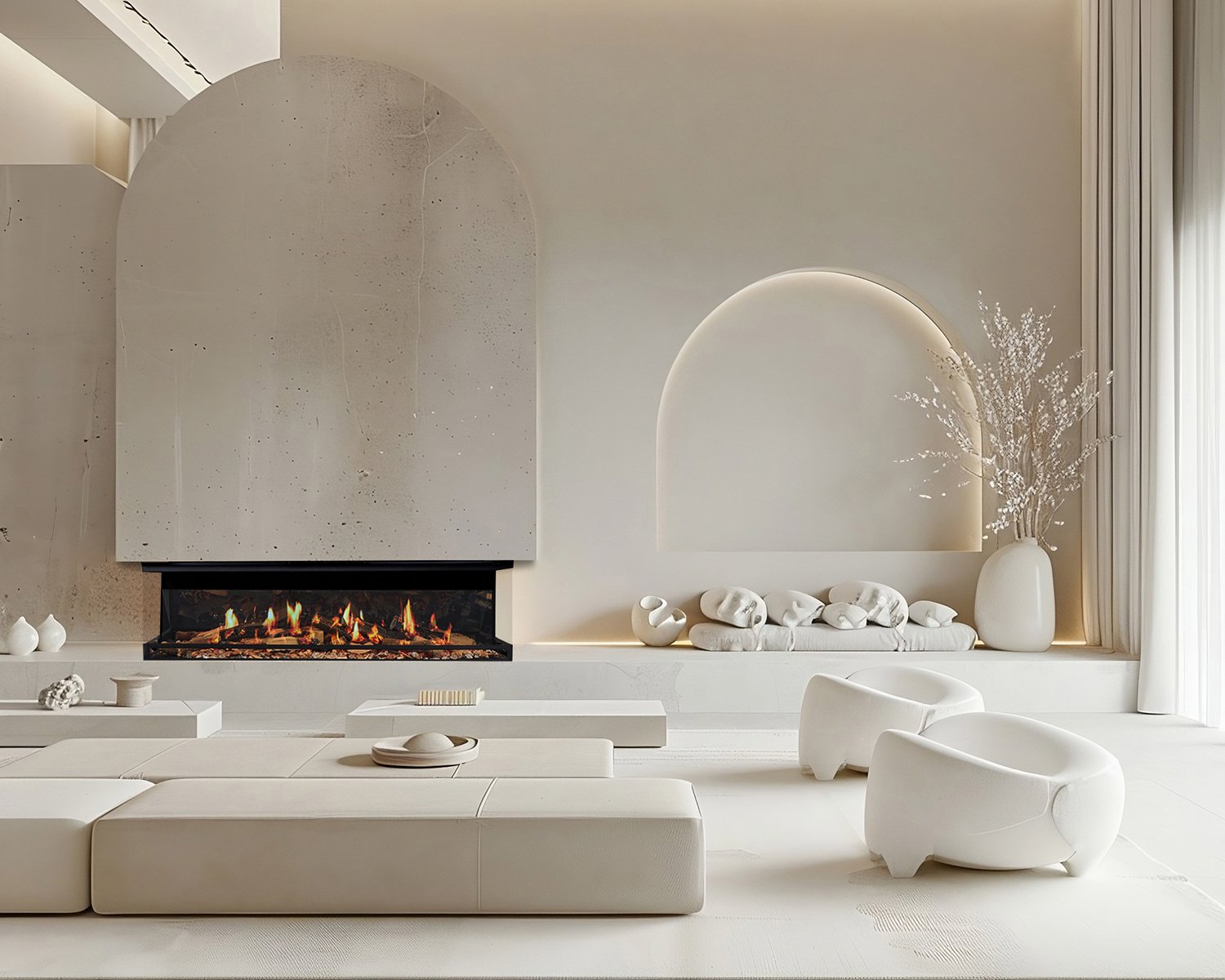
Fireplaces add a touch of coziness to any space, but traditional options emit harmful pollutants that contribute to poor indoor air quality. Enter the Holographic series from Ortal. Utilizing cutting-edge OLED-screen technology, the electric fireplace’s holographic projection creates lifelike 3D flames without producing any emissions, yet still delivering an energy-efficient heat output of up to 5,120 BTU per hour. The high-tech features don’t stop there: For maximum convenience, users can manage the fireplace’s settings through voice commands via Google Assistant and Alexa or the Ortal app.
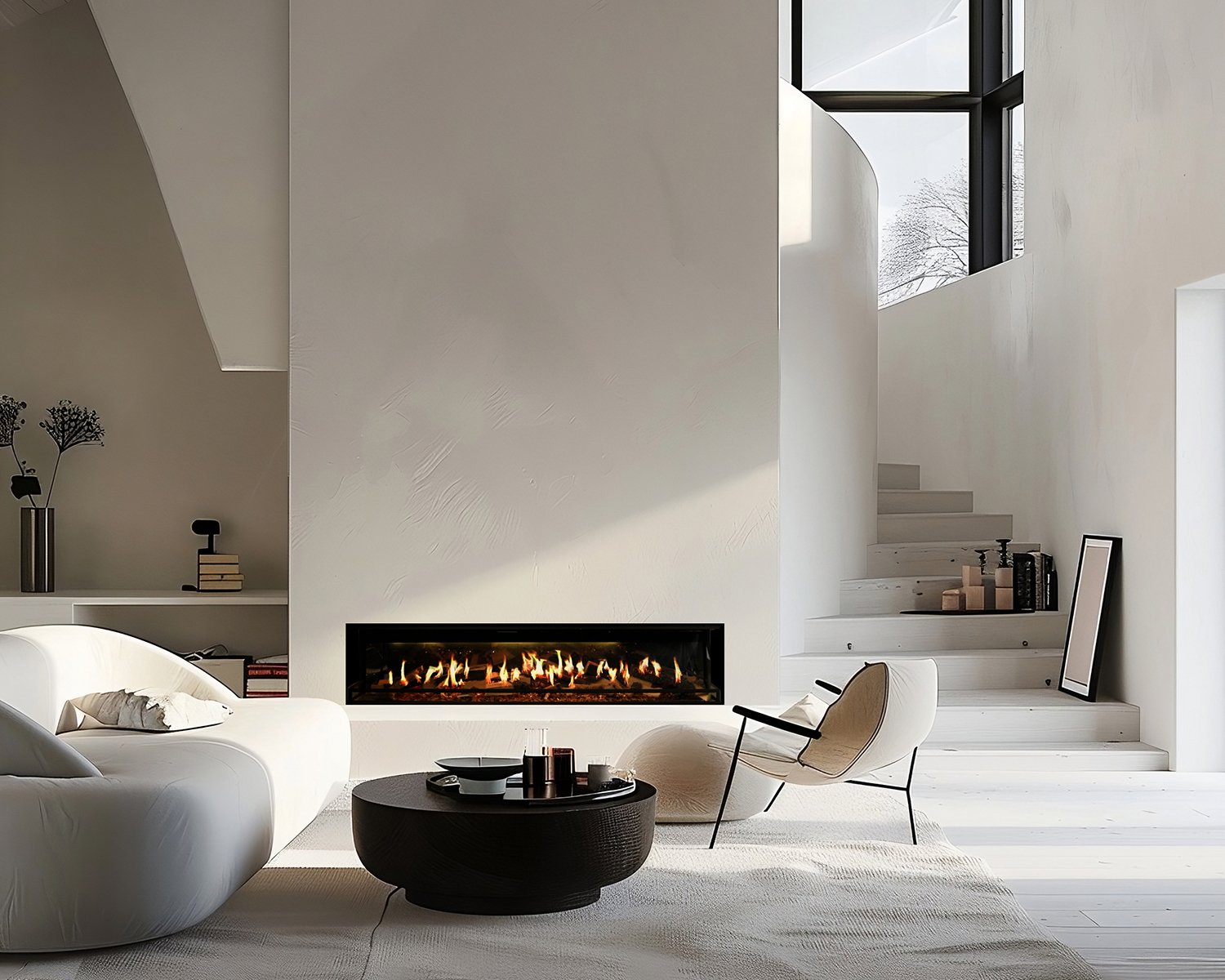
At just over 17 inches deep (and offered in 60- and 74-inch models), the fireplace is one of the shallowest on the market. Easily configured to front-facing, corner or three-sided styles, it is versatile enough to suit any space. Six flame options are available with three adjustable height and speed settings — plus optional crackling sound effects. In other words, the collection offers all the ambience of the real deal without the negative impacts.
5
Q0 Collection by Cosentino
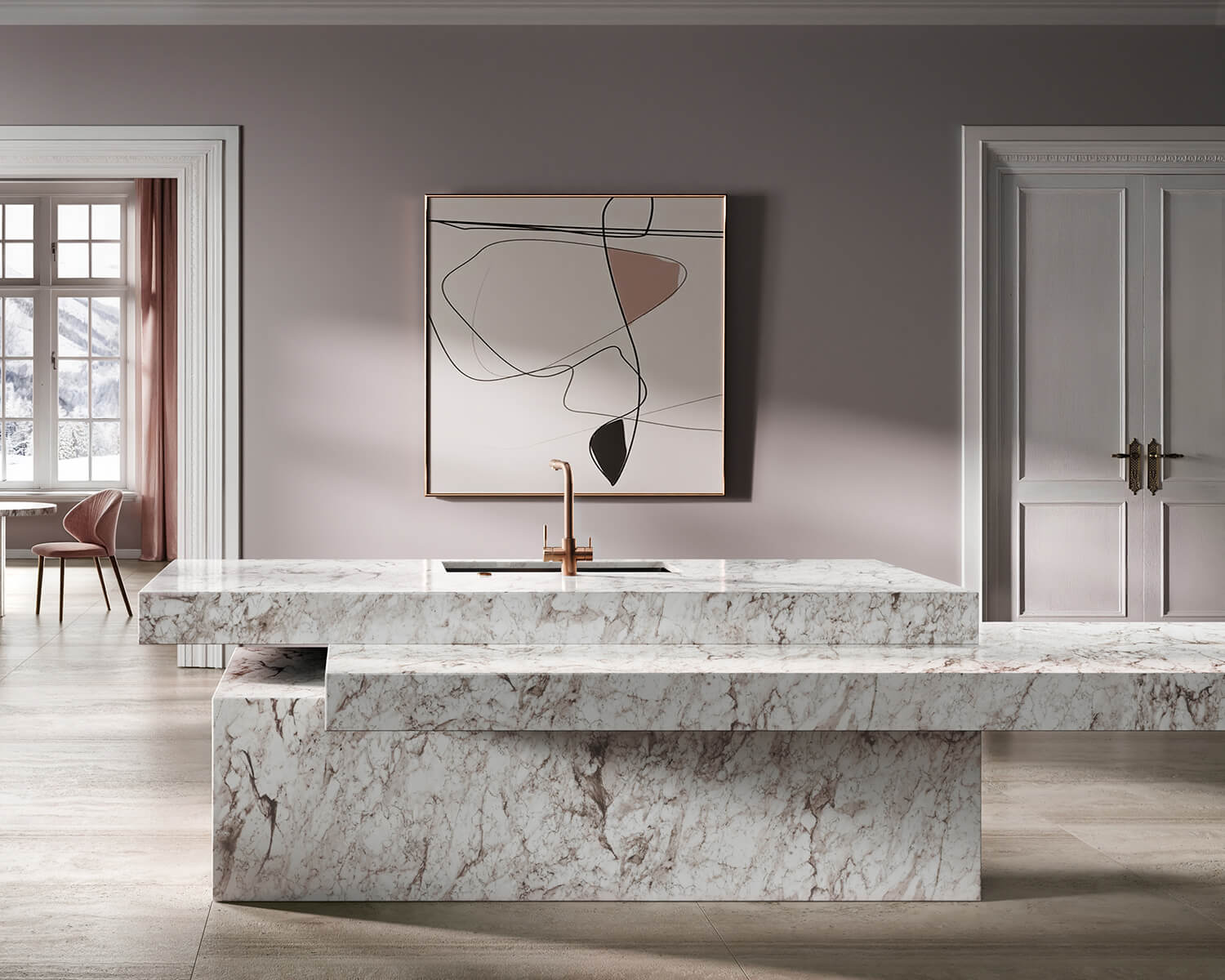
By now, it’s common knowledge that silica, a key component in engineered stone countertops, is an occupational hazard that poses considerable health risks during fabrication and installation. Fewer people, however, are aware of the environmental impacts of mining this mineral — from habitat loss to soil erosion and water and air pollution. With its Q0 composition collection, the first zero silica surface to leverage the brand’s Inlayr Design Technology, Cosentino takes a step forward in its sustainability mandate, creating an entirely new product category. Not only does the surface utilize up to 90 per cent recycled content, the technology also allows for hyper-realistic designs achieved through advanced robotization, innovative raw materials and new surface decoration techniques. Gradient effects, intricate colourways and deep veining enhance the full-body design. Though the collection debuted at KBIS 2025, it will officially launch this summer.
6
Pact Flex by Keilhauer
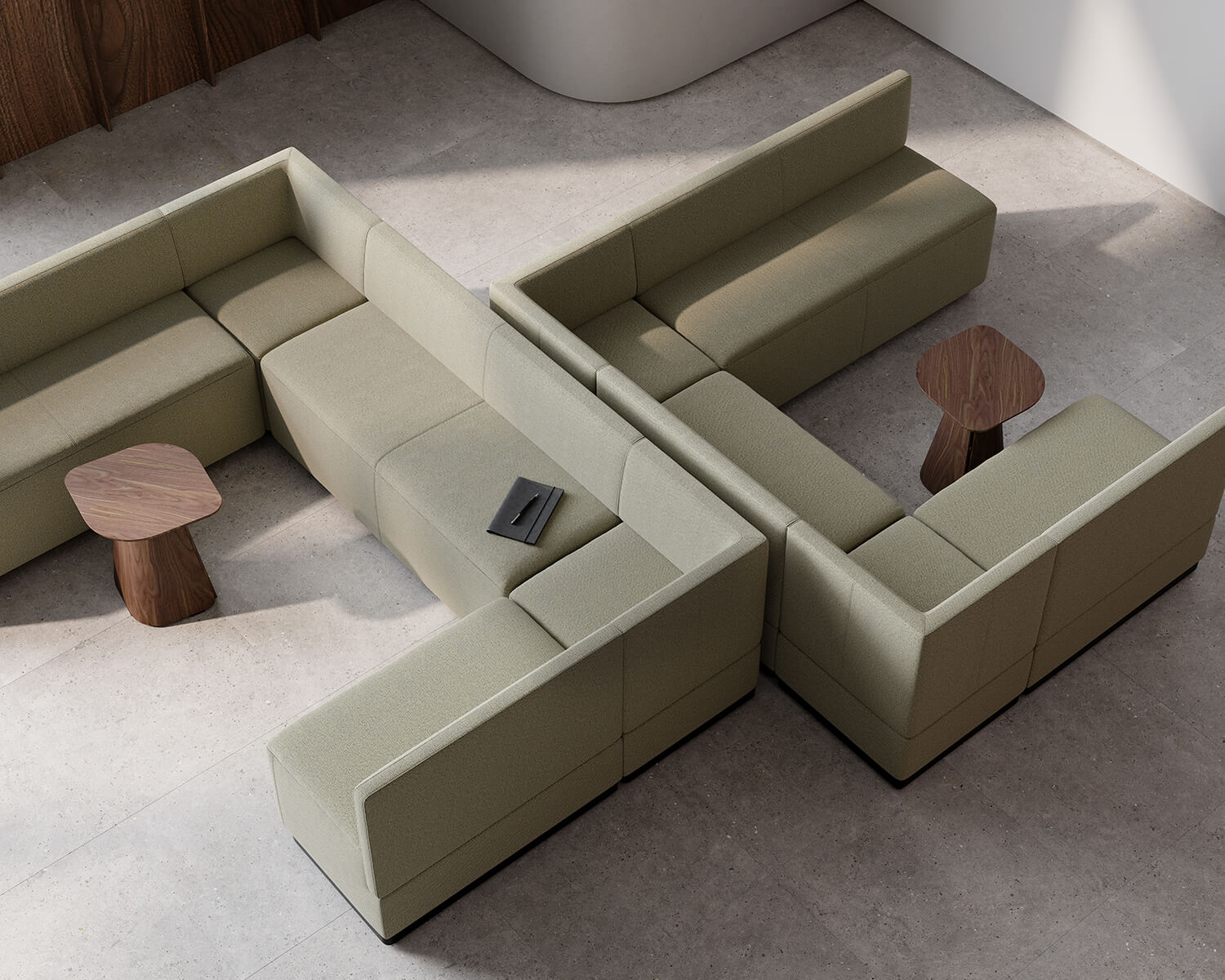
Building on its portfolio of carbon-neutral products, Keilhauer introduces the Pact Flex modular seating system, designed by longtime collaborators EOOS. Boasting the flexibility of bespoke design and the convenience of standard offerings, each module can be customized by the inch (from 25 to 60”) to create the perfect configuration for spaces of all sizes. The minimalist, clean-lined forms are considered down to the details: The seat tucks elegantly into the back for a compact design that doesn’t sacrifice on comfort. Both models — Seat and Back Cushion Only and Flex to the Floor — are offered in left, right, standard end and corner pieces. The former is intended to be integrated into an existing structure using the customer’s own base (a series of slim legs can be added, if desired), while the latter is designed as a standalone piece set atop a solid oak frame.

Keilhauer made every effort to reduce carbon emissions throughout the entire product life cycle, from third-party verified sustainably sourced materials, like FSC-certified wood, to responsible manufacturing. Pact Flex is shipped from facilities that contribute zero waste to landfills and offset 100 per cent of their electricity use with renewable energy credits — plus, the collection is over 97 per cent recyclable, giving its components a second chance at life.
7
Hahn Wall Shelves by Room & Board for Business
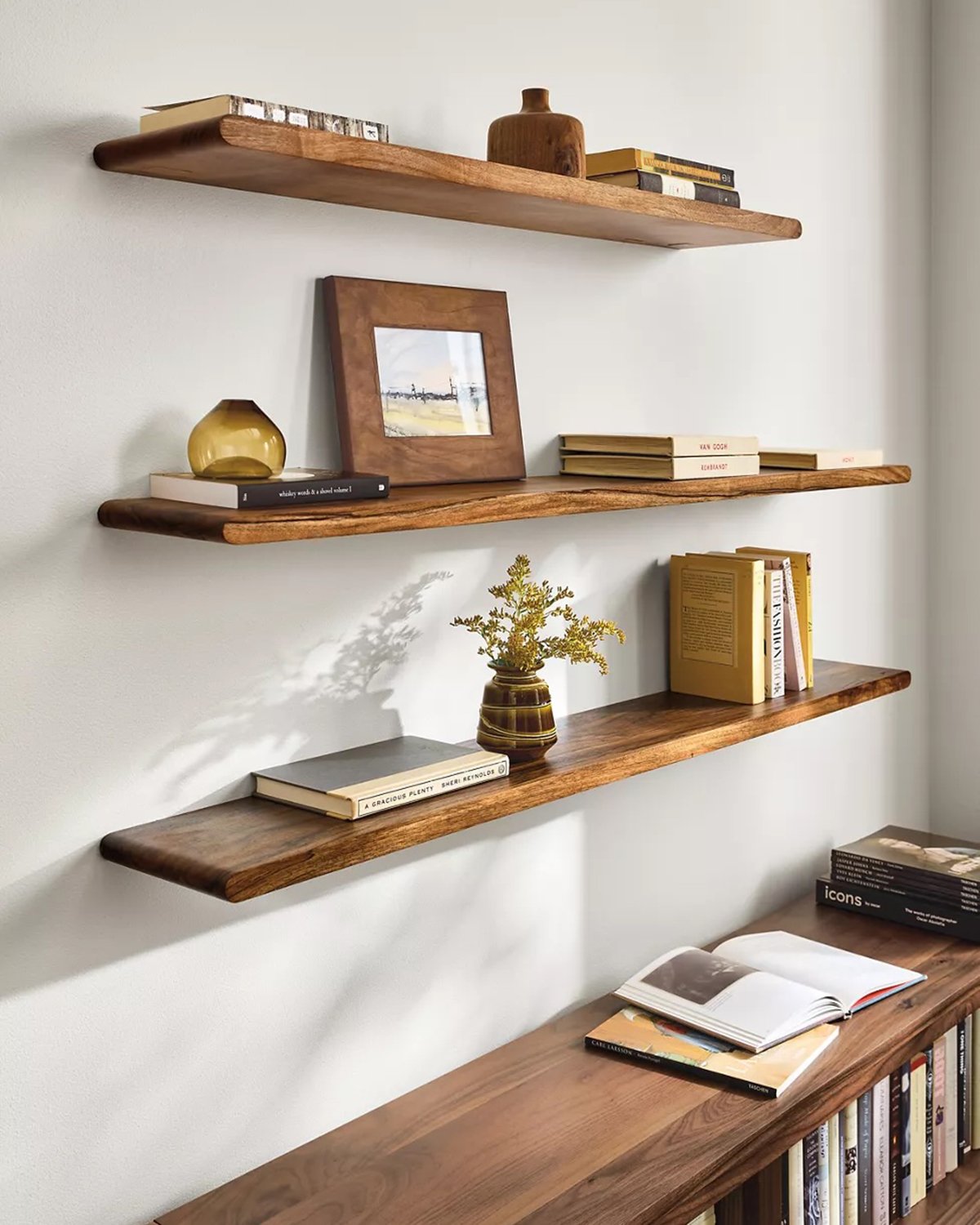
By the end of this year, Room & Board aims to use 100 per cent sustainably sourced wood to make its products — a goal achieved through the brand’s Urban Wood Project and partnership with Cambium Carbon, a Baltimore organization that sources fallen urban wood from across the country and repurposes it into usable lumber. An example of one such product is the newly launched Hahn Wall Shelf, crafted from reclaimed wood sourced from an orchard in northern California. The unique tree species, resulting from grafting English and American walnut, produces dramatic colour variations that gives each shelf a unique appeal. Natural oil and wax finishes enhance each piece’s one-of-a-kind character.
8
Growth by The Good Plastic Company
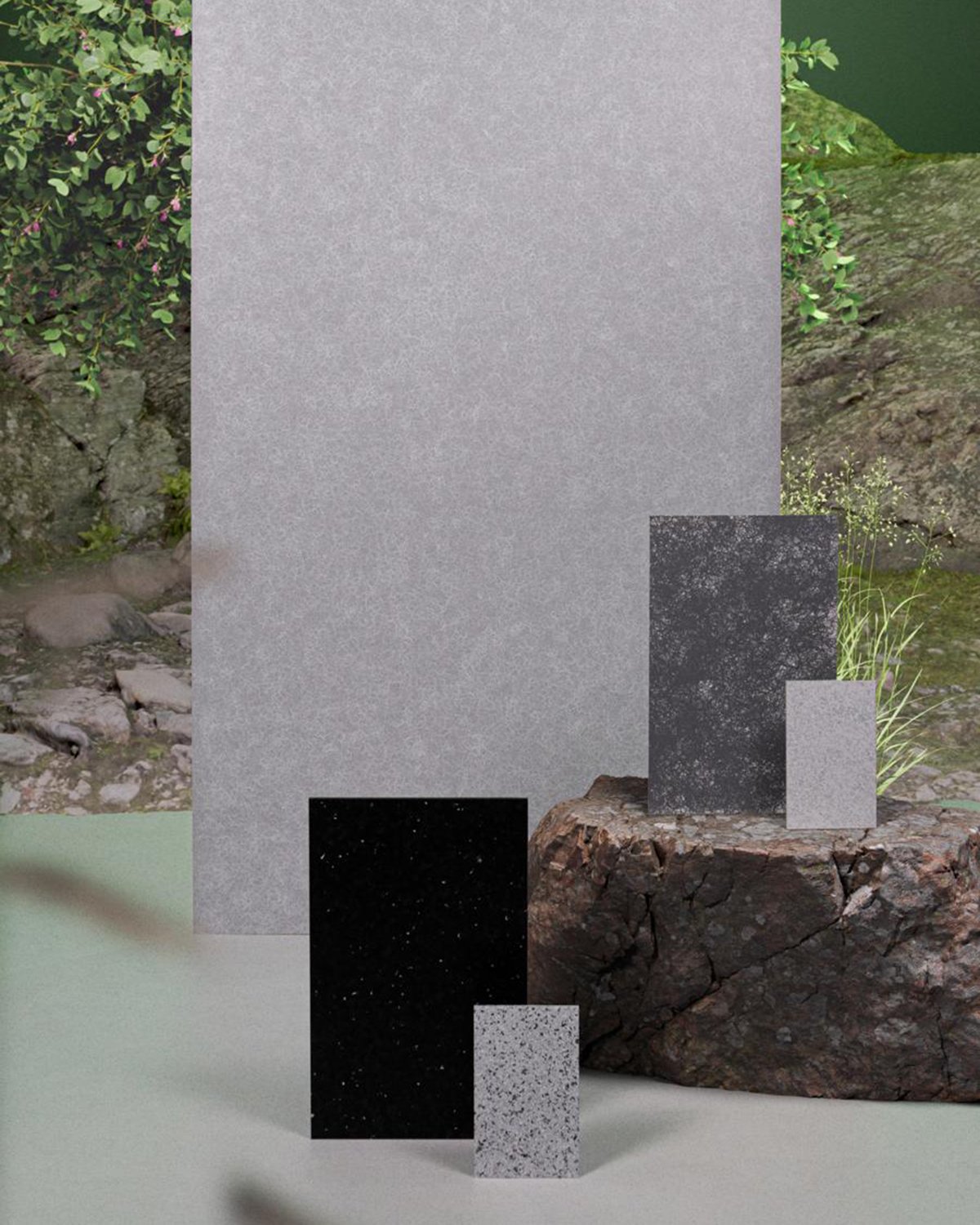
Back in February, The Good Plastic Company introduced its latest collection of Polygood patterns. Dubbed Growth, and designed in collaboration with Gensler, the Cradle to Cradle certified collection was modelled off traditional surface materials like marble and terrazzo. To make the 100 per cent recycled and recyclable polystyrene panels, a base of post-consumer and post-industrial plastic is combined with accents from discarded refrigerators, washing machine enclosures, consumer electronics and more — giving waste a beautiful new form. The eight patterns in the collection reference natural textures like the intricate details of tree bark and the luminescence of water, bringing in a dose of biophilia. Best of all, specifying Growth can save up to 13 pounds of carbon dioxide per square foot, compared to the current industry average.
9
Confer Chair by HON

Furniture manufacturing typically generates substantial material waste. With its Confer chair, crafted from hard maple, HON has sought to do its part by utilizing wood scraps from the production process to create corner blocks for the chair’s frame; additional wood byproducts are sent to local farms to be used as animal bedding.
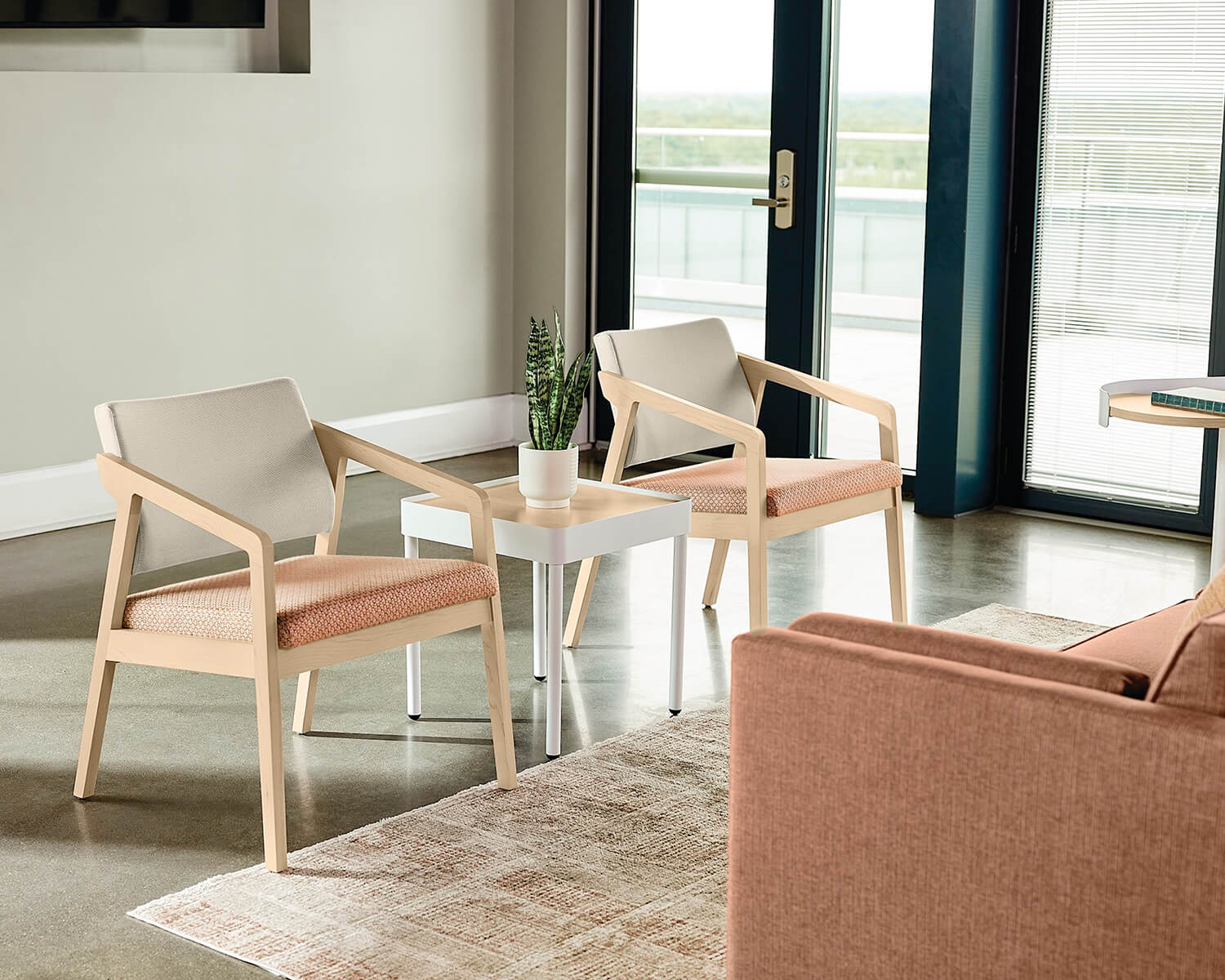
Channelling mid-century style, the guest chair features a relaxed posture that is comfortable in a variety of settings, including private offices, collaborative work areas or cafes. “Confer is the first wood chair for HON in several years, so I wanted to ensure the shape was simple and uncomplicated with aesthetic longevity,” says designer David Mehaffey. “I took inspiration from my vintage Sikes brand courthouse chair I have at home with the back flows into the arms.” The chair’s angled legs are designed to prevent scuffing when pushed against walls, while an integrated back handle offers easy mobility. Adding to the line’s versatility, stains in 18 colours coordinate with the HON case goods portfolio for a cohesive look. In addition to being a sustainable choice, the Confer chair is simply good product design.
10
Cambio by Windfall Architectural Products
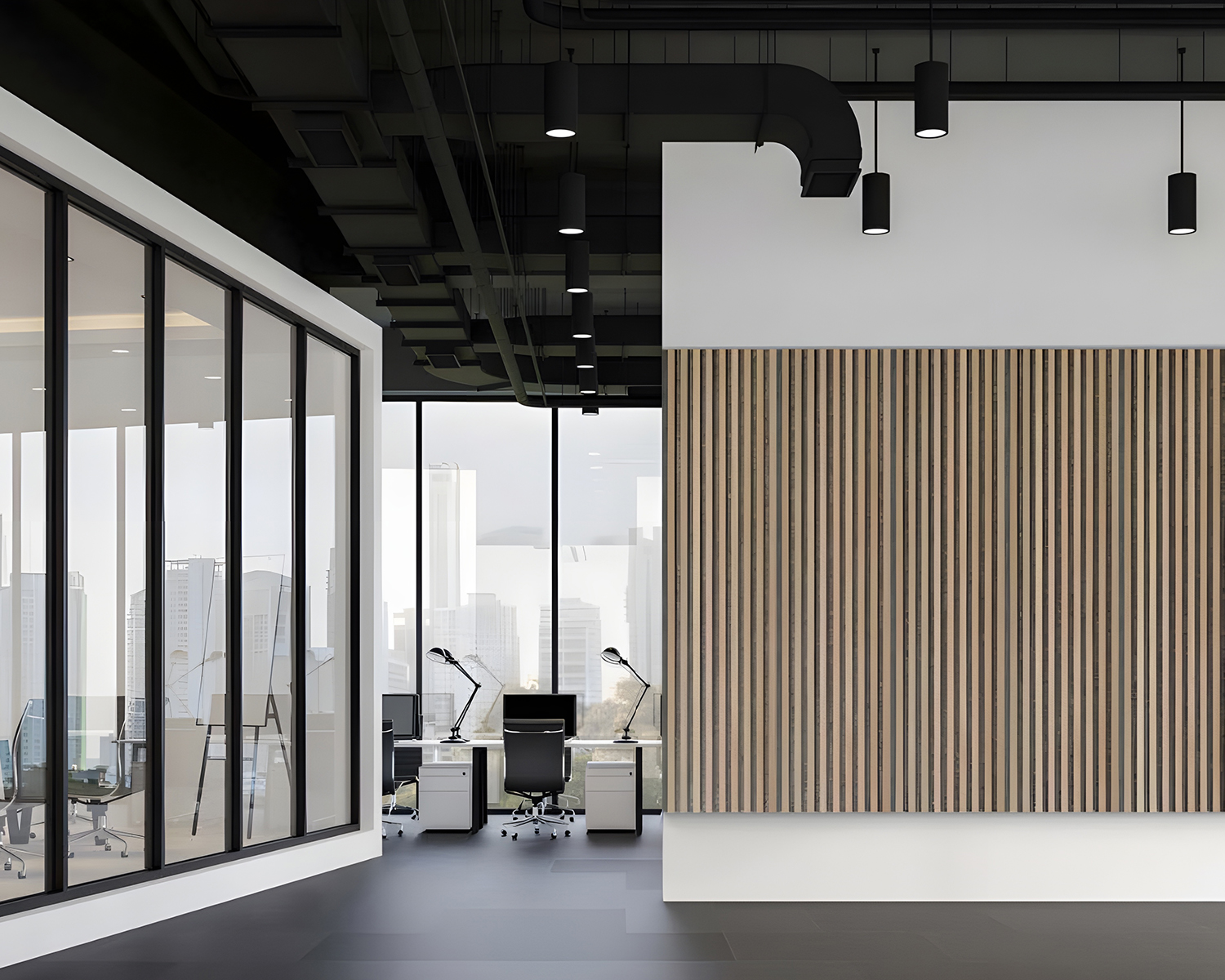
In 1996, an ice storm swept the Pacific Northwest, sending trees crashing down on homes, streets and powerlines. Windfall Architectural Products turned that climate disaster into an opportunity, repurposing the fallen timber into lumber. Today, the company manufactures everything from cladding to countertops, all made from salvaged, reclaimed and responsibly sourced materials. Its latest endeavour is Cambio, a magnetic architectural wall and ceiling panel system that makes use of material waste from renovation projects.
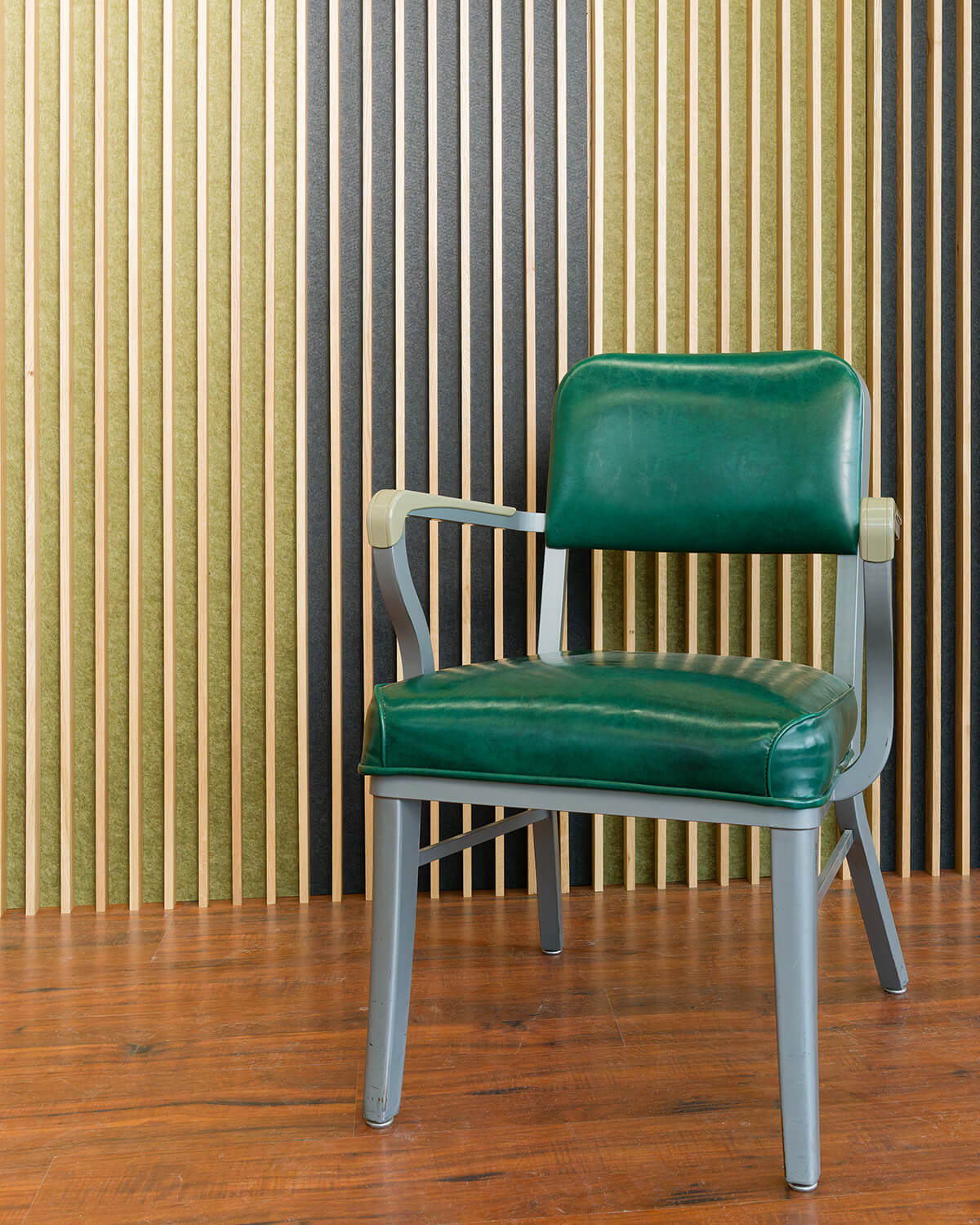
The flexible system composes a series of metal rails, to which over 500 variations of magnetic panels (in a range of sizes and materials including acoustic felt and wood) can be affixed and easily rearranged for a visual refresh or repair and maintenance. Standout designs include Mod, a series of colourful geometric patterns designed in collaboration with Andrew Bablo of Steez Design, and Rainier Fins, a sleek two-tone offering that combines both wood and acoustic felt. Through its Re-Cambio program, the company will take back panels for 100 per cent reuse, making the product entirely circular from sourced material to end of life.
10 Eco-Conscious Product Designs Making an Impact
This Earth Day, we celebrate the brands doing their part to bring more sustainable options to the market.
